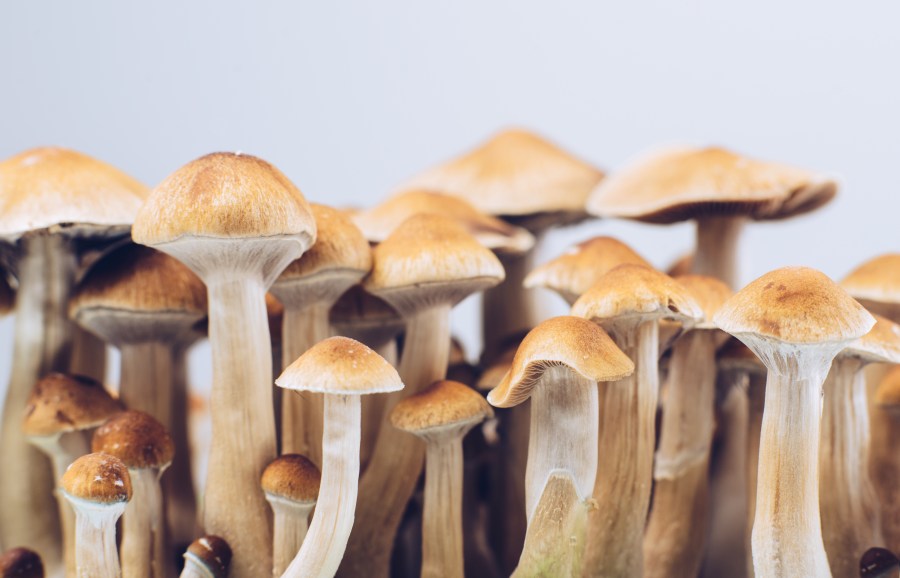‘Magic’ mushrooms could help heavy drinkers quit: study
(NewsNation) — A compound in psilocybin, or psychedelic “magic” mushrooms, can help heavy drinkers cut back, or even quit drinking entirely, a new study suggests, although experts say more research is needed.
Researchers at New York University recently conducted the first-ever placebo-controlled trial exploring the treatment of alcohol addiction with psilocybin. The new research was published Wednesday in JAMA Psychiatry.
“There had been promising research on the use of psychedelics to treat alcohol use disorder going back to the 1950s and ’60s, but it was abandoned mostly due to the bad reputation that psychedelics developed due to widespread misuse and countercultural associations in those days,” Dr. Michael Bogenschutz, director at NYU Langone Center for Psychedelic Medicine and one of the authors of the study, said on NewsNation’s “Morning in America.” “But when I saw the research on psilocybin, in normal volunteers without any particular disorder, starting to come out in the early 2000s, I became very interested in trying to see if we could harness these effects to treat alcohol use disorder.”
During the study, 93 patients took a capsule containing psilocybin or a dummy drug, then laid down on a couch with their eyes covered and listened to music. They received two of these sessions, one month apart, and 12 sessions of talk therapy.
While many who took a dummy drug instead of psilocybin also succeeded in drinking less, in the eight months after their first dosing session, patients taking psilocybin did better than the other group, the study found. Those who took the real drug drank heavily on about 1 in 10 days on average compared to 1 in 4 days for the dummy pill group.
Bogenschutz said it appears that treating a person’s alcohol use disorder with psilocybin and related compounds shakes up the established patterns of brain activity and thought and behavior, creating a new window of opportunity where people may be more likely to learn new behaviors, new patterns of thought and responding.
“So in the case of alcohol use disorder, finding new ways, to live rather than habitually drinking and damaging their lives in that way,” Bogenschutz said.
Th talk therapy was a very important component of the treatment, Bogenschutz said.

During the drug administration sessions, he said people are in a “highly altered state of consciousness,” and are unable to carry on a conversation. In addition, they are given relatively large doses of the drug that are highly mind-altering.
“Most people experience pretty strong effects and require support from trained clinicians in order to safely navigate the experience and benefit,” Bogenschutz said.
Giving people therapy during the study helped provide support and allowed people to see what they could learn from the psilocybin experience.
There are still at least a few years to go before this treatment becomes available for consumers, Bogenschutz said, as there’s a need to replicate this study’s findings and demonstrate to the Food and Drug Administration that psilocybin is a safe and effective medication.
The next study, he said, will be a larger, multi-site trial with 15 sites and over 200 participants.
Currently, only three conventional drugs — disulfiram, naltrexone and acamprosate — are approved to treat alcohol use disorder.
The Associated Press contributed to this report.














